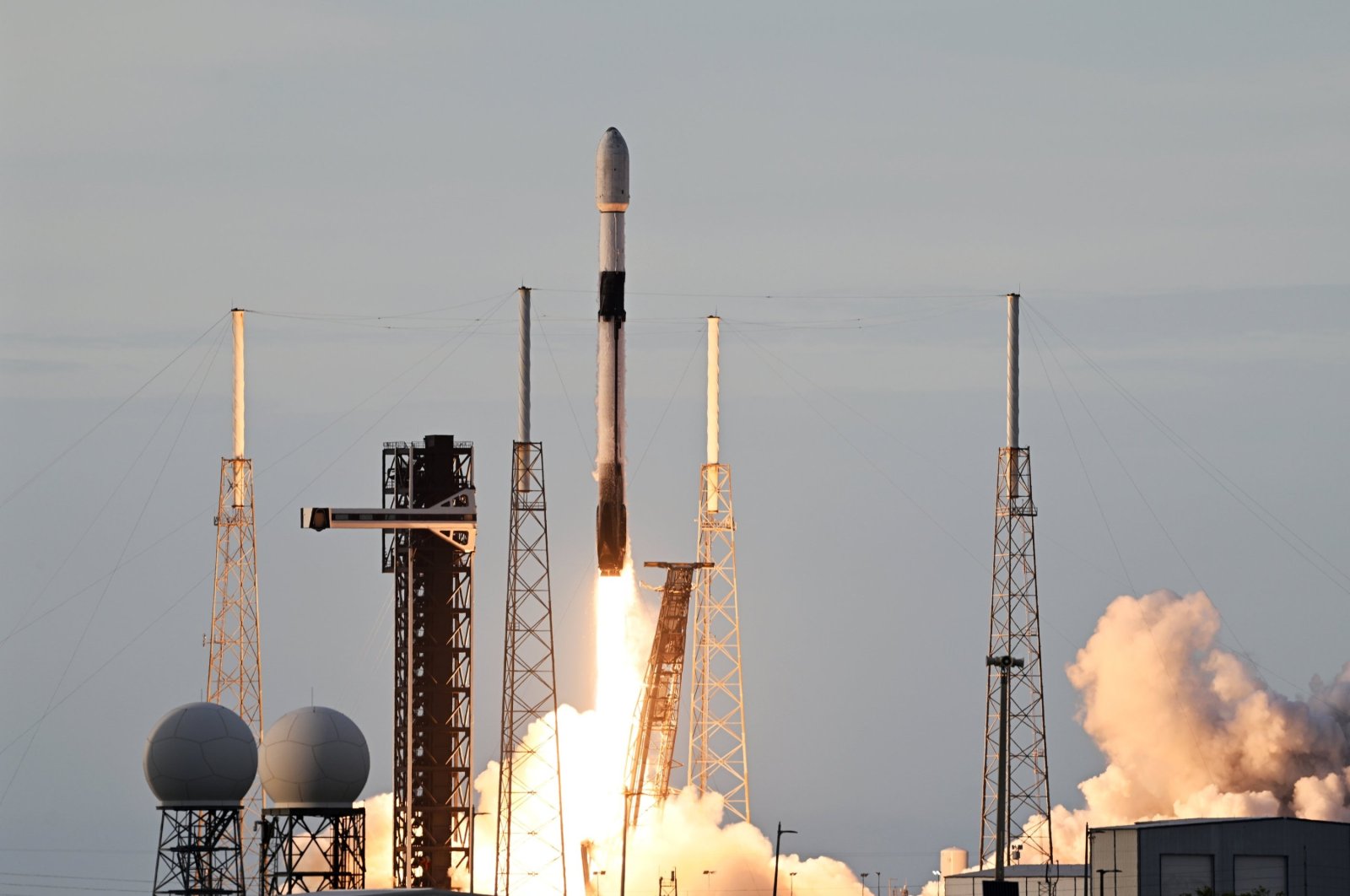
The electric propulsion engine developed by Space Technologies Research Institute (UZAY) of Türkiye's top scientific council for the country's first indigenous and national communication satellite, Türksat 6A, was successfully fired and gained space history in geostationary orbit.
The latest information within the scope of the Türksat 6A project was shared recently on the social media account of the Scientific and Technological Research Council of Türkiye (TÜBITAK).
In the post, it was stated that the HALE 1500 electric thrust engine developed by TÜBITAK UZAY for the project was successfully fired for seven minutes.
"Thus, our electric thrust engine, produced entirely with domestic and national means, gained space history in geostationary orbit at an altitude of 35,786 kilometers."
Hall Effect Thruster (HALE) is a type of electric thruster that is highly reliable for satellites and spacecraft. These thrusters are used for orbit raising, orbit keeping, phase keeping and de-orbiting maneuvers.
The post also provided information about the satellite's maneuvering efforts, adding: "While continuing the orbital tests of Türksat 6A, we also need to perform periodic position protection maneuvers to keep our satellite in orbit against disruptive factors originating from the Earth, the Sun and the Moon, and to maintain a safe distance from other satellites. "
"For this, we will use the two domestic electric thrust engines we have installed to keep our satellite in its longitude and maintain its orbital circularity," the statement said.
"Thanks to our electric thrust engine, which we have successfully used the HALE 300 version of in our IMECE satellite before, we will now be able to maneuver with less fuel and have the opportunity to increase the mission life of our satellite."
"This step we have taken in our national space journey is the work of our country's independent technological power and determined engineers. We are proud of our teams," the post read.
Türkiye's latest satellite, Türksat 6A, was successfully launched into space last month from Cape Canaveral Space Force Station in Florida, U.S., aboard a Falcon 9 rocket owned by SpaceX.
Türksat 6A is the first geostationary communications satellite built by Türkiye, with development led by TÜBITAK UZAY and Turkish Aerospace Industries (TAI).
The launch has made Türkiye one of the 11 countries capable of producing satellites through their own means, the Transport and Infrastructure Minister Abdulkadir Uraloğlu said at the time.
